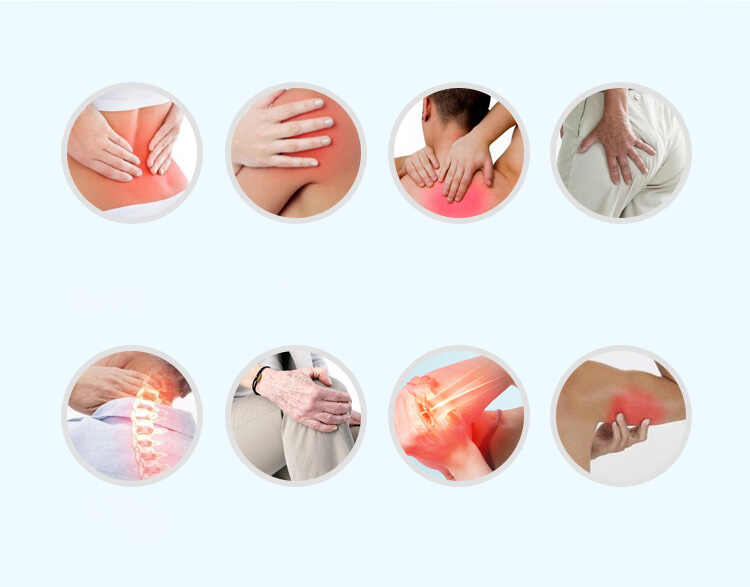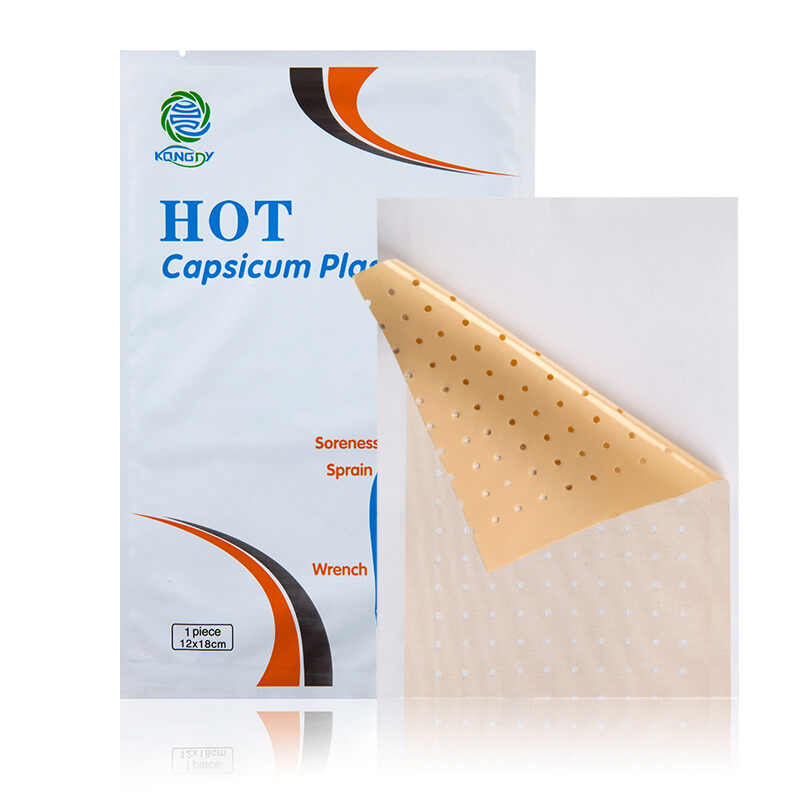What Certifications Should a Natural Capsicum Plaster Manufacturer Have? A Complete Compliance Guide for Global Brands
In today's wellness-driven market, Natural Capsicum Plasters are gaining global popularity as effective, non-invasive solutions for pain relief. Whether you're an emerging startup or an established health brand, working with a certified Natural Capsicum Plaster Manufacturer is essential to ensure product safety, compliance, and global market access.
Certifications serve as a manufacturer's credibility passport — confirming that they meet international standards for quality, safety, traceability, and regulatory compliance. Whether you're planning to produce Custom Natural Capsicum Plasters, engage in Private Label Natural Capsicum Plaster partnerships, or seek full Natural Capsicum Plaster OEM services, choosing a certified manufacturer is the first step toward building a trustworthy, compliant product line.
In this guide, we’ll outline the key certifications a manufacturer should hold, why each matters, and how they support your brand’s domestic and international success.

1. Why Are Certifications Important for a Natural Capsicum Plaster Manufacturer?
Certifications serve as third-party verification that a manufacturer adheres to internationally recognized quality, safety, and regulatory standards. They are crucial for:
Legal market entry in regions like the EU, US, and Asia
Consumer and distributor trust
Minimized risk of recalls, bans, or lawsuits
Easier registration and regulatory documentation for Custom and Private Label products
Reliable quality control during high-volume OEM production
✅ Certifications aren’t just a formality — they’re foundational to your product’s global credibility.
2. Essential Certifications Every Natural Capsicum Plaster Manufacturer Should Have
a. GMP – Good Manufacturing Practice
What it means: Ensures that products are consistently produced and controlled according to quality standards.
Why it matters:
Guarantees hygienic production environments
Reduces contamination risk
Ensures product consistency and safety
Who requires it:
FDA (USA)
EMA (EU)
CFDA/NMPA (China)
MFDS (South Korea)
Look for GMP compliance in both domestic and international versions (e.g., cGMP, EU GMP, WHO GMP).
b. ISO 13485 – Medical Device Quality Management System
What it means: A global standard specific to medical device manufacturing, including products like Natural Capsicum Plasters classified as medical devices in some regions.
Why it matters:
Required for CE certification in the EU
Ensures traceability, risk management, and design controls
Supports product registration across international markets
Key regions requiring it:
EU, Canada, Japan, Australia
✅ Any legitimate Natural Capsicum Plaster OEM producing for EU or medical-grade use must have ISO 13485.
c. CE Marking (for the European Union)
What it means: Indicates conformity with EU health, safety, and environmental protection standards.
Why it matters:
Mandatory for legal sale in the EU and EEA
Indicates compliance with EU MDR (Medical Device Regulation)
Required for importing and distributing capsicum plasters in Europe
Applicable for:
Private Label Natural Capsicum Plasters intended for Europe
OEM products supplied to EU distributors or retailers
CE marking requires a Declaration of Conformity, technical documentation, and potentially Notified Body review (depending on risk class).
d. FDA OTC Drug Establishment Registration (United States)
What it means: Compliance with FDA regulations for manufacturing over-the-counter drugs, which includes topical analgesic plasters.
Why it matters:
Required for selling Custom Natural Capsicum Plasters in the U.S.
Includes adherence to monograph guidelines (e.g., 21 CFR §310 for topical analgesics)
Enables easier product listing and importation into the U.S.
Additional requirement:
Accurate Drug Facts Labeling and safety disclosures
Choose a Natural Capsicum Plaster Supplier that is registered with the FDA and experienced in U.S. market compliance.
e. MSDS – Material Safety Data Sheet
What it means: A document outlining the safety profile, handling, storage, and disposal guidelines for the product’s ingredients.
Why it matters:
Often required by customs, logistics, and regulatory bodies
Supports product safety and hazard transparency
Mandatory for global shipping and workplace safety protocols
A Natural Capsicum Plaster Manufacturer should provide MSDS upon request — especially for products with capsaicin, menthol, or camphor.
f. COA – Certificate of Analysis
What it means: A report verifying the quality and consistency of each production batch.
Why it matters:
Confirms active ingredient concentration
Validates microbial limits and heavy metal content
Required for regulatory inspections and customs clearance
COAs are especially important for Private Label Natural Capsicum Plaster buyers who need to verify product quality before distribution.
g. Halal, Vegan, or Organic Certifications (Optional by Market)
Depending on your target demographics, you may need:
Halal certification for Muslim-majority markets
Vegan certification for plant-based brands
Organic certification for eco-conscious consumers
These certifications increase your appeal and marketability in specific global regions.
3. How to Verify a Natural Capsicum Plaster Manufacturer’s Certifications
Before choosing a Natural Capsicum Plaster OEM, always verify their claims:
Request PDF copies of all relevant certifications
Check certificate validity dates and issuing authorities
Cross-check registration numbers on official databases (e.g., FDA, ISO)
Ask for audit reports or factory inspection results
Inquire about past experience with compliance audits in your target markets
✅ If a manufacturer hesitates to share documents, it’s a red flag.
4. Benefits of Working with a Certified Natural Capsicum Plaster OEM
| Benefit | Description |
|---|---|
| Faster Market Entry | Pre-certified products are easier to register and distribute |
| Legal Compliance | Meets regional laws, avoiding product bans or legal issues |
| Enhanced Brand Reputation | Certification logos build consumer trust |
| Product Consistency | Every batch is traceable and quality-tested |
| Retailer Approval | Big-box and pharmacy chains often require documented certifications |
5. Certifications in Action: Examples by Region
| Region | Required Certifications | Notes |
|---|---|---|
| USA | GMP, FDA OTC, COA | FDA-monograph compliance is a must |
| EU | ISO 13485, CE mark, MSDS | Needed to meet MDR for medical devices |
| China | NMPA registration, GMP | Local testing and registration often required |
| Middle East | GMP, Halal (optional) | Halal boosts acceptance in Muslim-majority markets |
| ASEAN | GMP, MSDS, COA | Labeling in local languages often required |
Conclusion
Choosing a certified Natural Capsicum Plaster Manufacturer isn’t just a smart business decision — it’s a non-negotiable step toward building a safe, trusted, and internationally recognized brand.
Whether you're pursuing a Custom Natural Capsicum Plaster with innovative ingredients or launching a Private Label Natural Capsicum Plaster for rapid market entry, working with a certified Natural Capsicum Plaster OEM gives you the legal standing, quality assurance, and brand credibility you need to compete.
Always request and verify certifications such as GMP, ISO 13485, FDA, and CE — they serve as your foundation for safe production, international trade, and long-term success.
Frequently Asked Questions (FAQs)
1. What is the most important certification for a Natural Capsicum Plaster Manufacturer?
Answer: GMP is essential for all markets; ISO 13485 and CE mark are crucial for medical device classification in the EU.
2. Do I need different certifications for Custom and Private Label products?
Answer: The product type doesn’t change the need for certification — both require compliance with manufacturing and market entry standards.
3. Can a Natural Capsicum Plaster OEM help with CE and FDA applications?
Answer: Yes. Experienced OEMs often provide the documentation and guidance needed for CE/FDA approvals.
4. Is CE marking enough to sell globally?
Answer: No. While CE is valid in the EU, other markets (like the U.S. and China) have separate requirements.
5. How often do manufacturers renew certifications like GMP or ISO?
Answer: Most certifications are valid for 1–3 years and require periodic renewal and audits.
Need help evaluating a Natural Capsicum Plaster Supplier or reviewing certification documents? I can assist with checklists, factory audits, or helping you shortlist compliant partners. Just ask!






